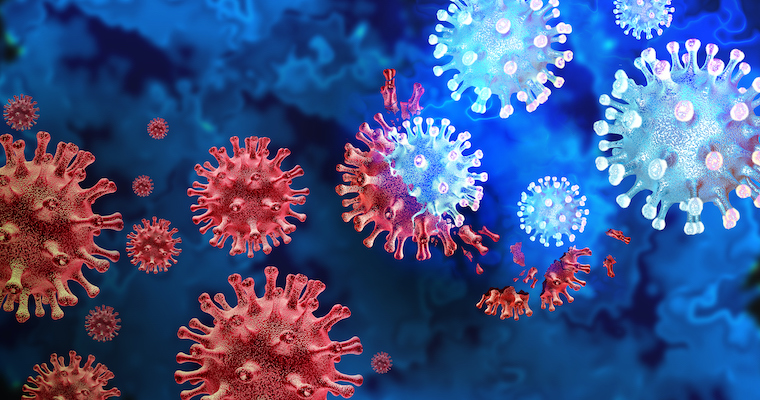In an important step to better prepare for future pandemics, researchers at the School of Medicine and UVA's Biocomplexity Institute are helping to establish a national network that will identify, respond to and prevent future infectious-disease outbreaks.
The UVA researchers will work with the Virginia Department of Health, the Virginia Division of Consolidated Laboratory Services and Virginia Commonwealth University to develop a Virginia-based center in the national Pathogen Genomics Centers of Excellence Network. The Virginia center is one of only five in the nation.
The new network will use genomic data about pathogens to drive the response to infectious diseases in the future. This type of data was essential to developing testing, treatments and vaccines for COVID-19 as quickly as we did.
“Combining pathogen genomics with epidemiologic data can reveal transmission pathways to help us better understand a pathogen. The sooner you have that knowledge, the sooner you can develop ways to slow or stop its spread,” said our Amy Mathers, MD, an infectious diseases specialist who is leading the initiative at UVA. “You can also develop diagnostics to identify it and test for it.”
Dr. Mathers’ team will focus on antibiotic resistance, a growing problem around the world. Antibiotic resistance can produce “superbugs” that do not respond to treatment. As part of its work, Dr. Mathers' team will seek to enhance wastewater surveillance to detect both antibiotic resistant bacteria and other infectious diseases. Then researchers at the Biocomplexity Institute will use that data to develop better, more accurate models and analyses of antibiotic resistance and future infectious disease outbreaks.
“Wastewater surveillance has already been shown during the COVID-19 pandemic to extremely useful metric for measuring the disease and guiding response to outbreaks. That said, this is still a new surveillance technique, and there is a lot of research needed to hone this in to a fully operational and routine tool in our arsenal,” said Madhav Marathe, PhD, director of the Network Systems Science and Advanced Computing Division at the Biocomplexity Institute. “Additionally, wastewater surveillance has the promise to provide a host of other useful information for public health officials, and we are excited to work with them on helping translate that data into practice.”
The Biocomplexity researchers will also share important info on infectious diseases through a national platform called Scalable Cyberinfrastructure for Genomic Surveillance, as well as train others on how to best use the platform and its host of information.
